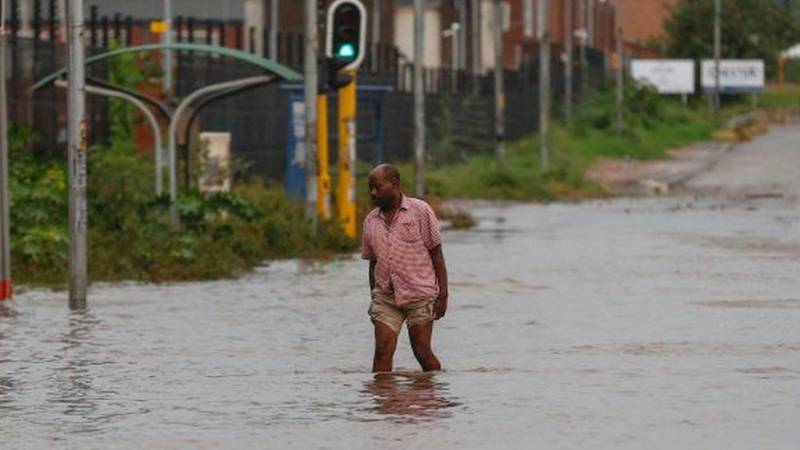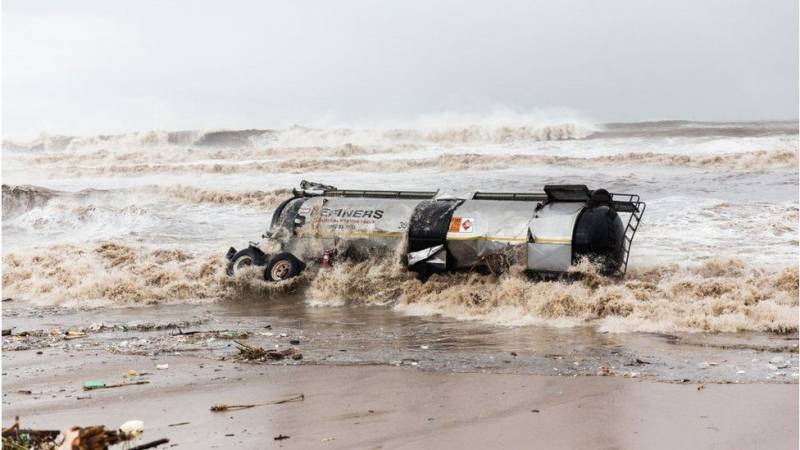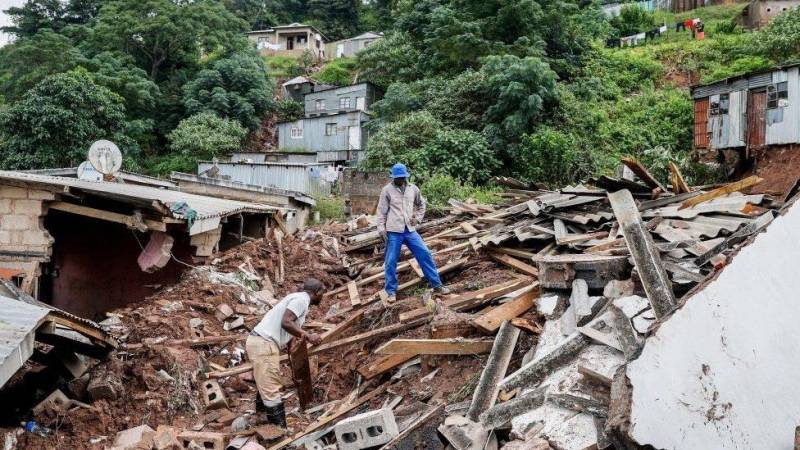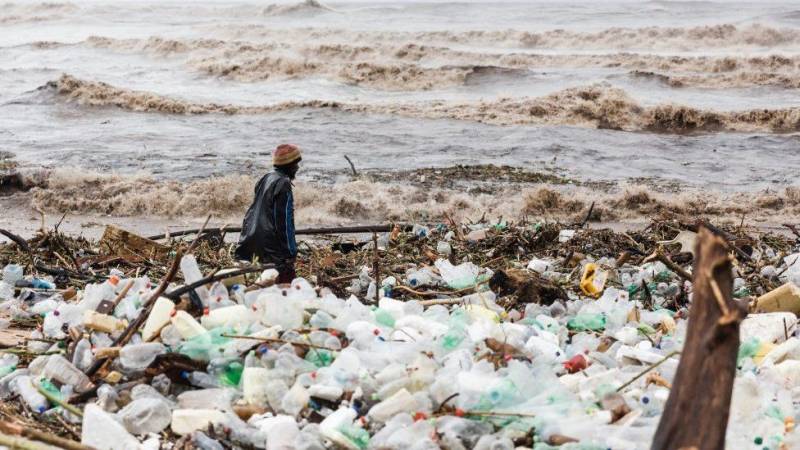The death toll in the South African province of KwaZulu-Natal has reached more than 300, after devastating floods wreaked havoc in the area.
A state of disaster has been declared in the area, after some areas saw months worth of rain fall in one day.
Officials have called it "one of the worst weather storms in the history of our country".
Mudslides have trapped people under buildings, with more floods expected.
There are reports that the rescue effort is being hampered by poor visibility as a helicopter continues to bring people back to safety.
On Tuesday the BBC witnessed one such search operation for a 10-year-old girl who was part of a family of four swept away on a flooded bridge.
Community volunteers waded into the muddy river, taking turns to hack away at the branches using machetes and removing debris and rubbish that had washed downstream.
Jomba Phiri, who lives in the region's main city, Durban, said his house had been swept away in the floods.
"I don't know where we're going to sleep now," he told Reuters news agency.
Parts of the crucial N3 highway which connects Durban to South Africa's economic heartland of Gauteng province have been blocked.
President Cyril Ramaphosa has visited the area and pledged to help.
"Even though your hearts are in pain, we're here for you," the Reuters news agency quotes him as saying.
He also described the disaster as a "force of nature", which some have disagreed with. They blame poor drainage and badly built houses in low-lying areas for the high death toll.
Durban Mayor Mxolisi Kaunda denied that poor drainage was to blame, saying the scale of the flood was unexpected.
Scenes of destruction are still evident throughout the area. Some of the roads to the port of Durban, one of the busiest in Africa, are impassable after the swollen river washed mud and debris onto the roads.
Operations at the port have now been suspended. A shipping container warehouse near a busy highway was severely flooded, and hundreds of containers were washed away.
In an industrial area called the Bluff, which forms part of the port, the BBC witnessed cars overturned on the road, or crushed by debris. Companies are using water pumps to drain the water from their premises.
There is also a hunt for crocodiles that were washed away during the floods, although most have since been found.







